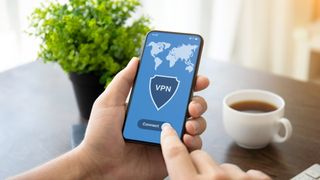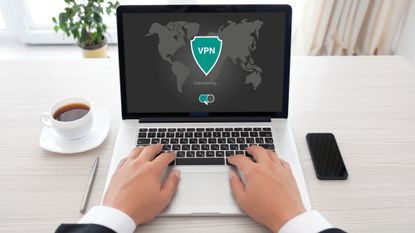The best VPN technology is becoming increasingly popular and is compatible with most digital devices, from smart TVs to cell phones. Sitting at the core of any VPN platform is the VPN server. But what exactly is it, and what does it do? We explain all in this article.
VPN services provide an extra layer of privacy, enable enhanced security when browsing on public Wi-Fi connections, and mask the location of a user. It’s a VPN's location masking ability that enables users to bypass geo-restrictions and access content from anywhere in the world. With many services like video streaming limited to specific regions, and with internet restrictions becoming more widespread, this feature has become a key selling point for VPN providers.
What is a VPN server?
A VPN server is actually no different from a regular server. What makes it special is the software installed on it, which enables the VPN client you are using to connect to the server. The VPN server is the essential hardware required for a VPN platform to operate successfully.
VPN providers are rated for numerous things, such as uptime. But one of the most important factors to look for is the number of servers they incorporate, and the spread of locations covered. For example, ExpressVPN has over 3,000 servers spread across 94 different countries. It's this variation of server locations that yields the biggest benefit for users trying to bypass geo-restrictions.

How does a VPN server work?
When you launch a VPN, the VPN client connects to a server. You can usually choose the location of this server from a drop-down on the VPN app dashboard. From this point, your internet traffic is routed via this server, using an encrypted connection. This means your browsing session is more secure, but it also enables you to obscure your location by using the VPN server as a proxy.
The VPN server will mask your IP address and use its own as a replacement. For example, if you were logging on in the US while on holiday but wanted to access content solely for UK consumers, a VPN could reroute your internet traffic to a server based in UK territory.
What are the benefits of masking your location?
There are many reasons that a user might wish to conceal the location of their IP address. Some countries use internet censorship measures, such as China’s Great Firewall, to limit the online content available to their citizens. A VPN server enables you to avoid these geo-restrictions.
For many, IP masking simply allows them to gain access to more online entertainment. For example, many consumers now use VPN technology to access region-specific streaming services with the best Netflix VPN, or the best iPlayer VPN to watch BBC’s iPlayer when you find yourself outside of the UK. You can also use a VPN server to access content from home whilst traveling abroad.
A VPN service enables you to operate with enhanced anonymity, allowing you to bypass country-specific internet barriers. The key to avoiding geo-restrictions is to connect to a VPN server in a different location to the one you’re in.
By doing so, you can trick the website or application you’re using into allowing your IP address access to content which would otherwise be blocked. With VPNs becoming increasingly popular, there are now a range of options to suit all budgets. So everyone can benefit from this handy technology.
In search of more info about VPNs
- Discover the best Windows VPN for your PC
- Apple user? Here's our picks for the best Mac VPN
- Get help on how to download NordVPN onto your device with our guide













